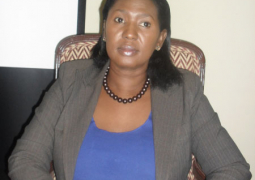Preparations are at finishing stages for the University of The Gambia history club members to take a trip to Guinea Conakry to conduct a research to compare the history of the Manding-speaking people and that of the Fulani people of Futa Dillo.
The research findings will be made public after the trip, and students are expected to visit Labe, Dalaba, Dallen, Mamou and Tibo, all in Guinea Conakry geared towards equipping the history students with knowledge on the socio-cultural linkage between the two tribes and countries.
At a recent briefing session for members of the club and journalists, the public relations officer of the UTG History Club, Buba S.M. Ceesay, said the briefing was organised to better enhance and prepare students to research on the methodology and data collection they will do in Conakry to help them to deliver efficiently on the research findings for public consumption.
The briefing was held at the UTG conference room at Gambia Collage, Brikama Campus.
John Jatta, representative of the Vice Chancellor at the briefing, underscored the importance of embarking on such educative and research trips beyond the borders of the country.
He added: “I came to appreciate the importance of history, especially Gambian history. I know lots of history, however my Gambian history is real good, so I commend you all Mr Touray and the students.
“History is very important and as you embark on this journey this will be a challenge because of the kind of history you are working on (Oral history) is very difficult to trace. People who are there before are no longer with us and sometimes things get lost in translation.”
He was quick to say that research and data collection are vital, adding: “Sometimes you might think that you have the right data but until you go and use it and you realize that it doesn’t fit the purpose, so as you embark on this trip I will hope that you take that in mind understanding that oral history is what is being said or you don’t have the crucial data that is within; so you go back again.”
He also urged the students to ask questions to clear their doubts before returning to Banjul hoping that the trip will be successful for not only the UTG but the region as a whole.
Some people think history is not rewarding but also history is very rewarding as it unearths the truth about life and places, he says, adding that when one talks of patriotism is because of history.
He resolves the VC’s commitment to supporting the history club in their desire to research and bring in findings.
“Take the enthusiasm you have taken during your last research trip to Guinea Bissau,” he urged the students.
Essa Touray, lecturer of history at the UTG and coordinator of the UTG History Club, said the research is important because there are two political entities in the greater Senegambia region, i.e. Kaabu as entity and Futa emanated as an entity.
He added that they believe the two entities are living side by side together independently in peace and stability.
“We understand that the global system and the global phenomenon change and we also understand that there existed also political instability - that was when the cash crop production was introduced. We came to believe that it affected the political entities and kingdoms within the Senegambia region and Kaabu and Futa conflict came as a result of that global phenomenon,” Touray, who led the previous team to Guinea Bissau, told reporters at the orientation session.


